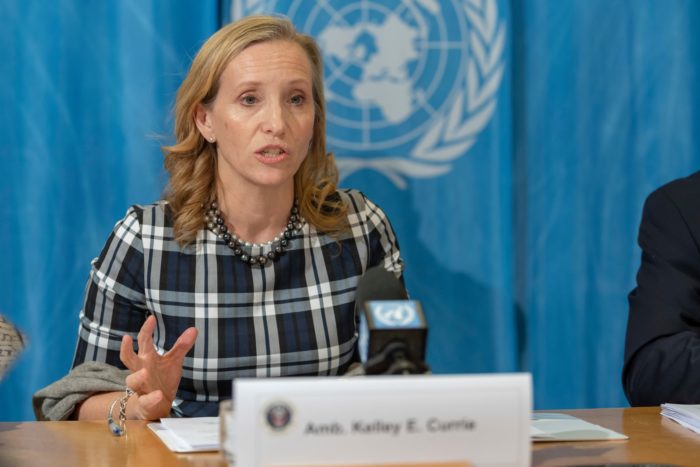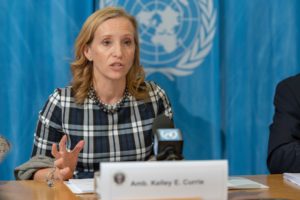U.S. Steps Up Criticism of China for Detentions in Xinjiang

The New York Times, 13 March 2019
 By Nick Cumming-Bruce – As China prepared to defend its record before the United Nations Human Rights Council, the United States on Wednesday led Western governments, academic experts and human rights supporters in challenging Beijing over its mass detention of Muslims in the western region of Xinjiang.
By Nick Cumming-Bruce – As China prepared to defend its record before the United Nations Human Rights Council, the United States on Wednesday led Western governments, academic experts and human rights supporters in challenging Beijing over its mass detention of Muslims in the western region of Xinjiang.
China’s oppression of religious and ethnic minorities is well known. “What’s new is the breadth of the repression and how the Chinese government is using breakthroughs in technology to increase its effectiveness,” Kelley Currie, a senior United States diplomat, told a meeting on the sidelines of the council in Geneva.
The United States would consider targeted measures against Xinjiang officials to promote accountability for violations there, said Ms. Currie, who serves with the State Department’s Office of Global Criminal Justice. She urged China to reverse its policies and allow access to the region by United Nations experts.
The United States withdrew from the human rights council last year, accusing it of having an anti-Israeli bias and serving as a platform for some of the world’s worst rights abusers, but it has since pulled back from complete disengagement.
The meeting also highlighted an escalating effort by China to counter international criticism. China is scheduled to appear at the council on Thursday for the last round of a formal review of its human rights performance.
China’s mission to the United Nations in Geneva organized four meetings and a photo exhibition to reinforce that narrative. Diplomats and human rights activists reported that it also lobbied hard to dissuade other countries from attending the United States event on Wednesday, warning it would view participation as a hostile act.
That pushback, along with qualms about aligning too closely with the Trump administration appears to have kept some countries from supporting the event. But Britain, Germany, the Netherlands and Canada agreed to sponsor the meeting, drawing diplomats from a dozen countries and a large crowd of rights activists.
Adrian Zenz, a German lecturer and an expert on Xinjiang, told the gathering that China’s re-education and detention centers have expanded rapidly in the past two years and may hold as many as 1.5 million Uyghurs and members of other Muslim minorities. He called China’s tactics “nothing less than a systematic campaign of cultural genocide.”
Omir Bekali, a 43-year old Kazakh Uyghur, said that Xinjiang police arrested and tortured him for days in 2017, after which he was held at a camp for six months, in a small room with 40 people.
There, Mr. Bekali said, the detainees had to sing songs about President Xi Jinping, praise the country’s Communist Party and eat pork. “We had no right to talk,” he told those who attended the meeting.
A diplomat who carried a placard that identified him as representing China called Mr. Bekali’s account “a complete lie.”
“These centers are nothing else than normal boarding schools” he said.
That narrative, supported by China’s political and economic muscle, has silenced many countries, especially those that are predominantly Muslim, human rights groups say.
In an earlier council session reviewing China’s human rights record, Turkey was the only Muslim country that criticized China’s treatment of Uyghurs and other Muslims.
Still, human rights groups saw Wednesday’s meeting as a chance to build momentum for a stronger response by Human Rights Council members later this year.
Beijing’s strong defense of its measures in Xinjiang, Mr. Zenz said, “tells me that the re-education campaign” there “is part of a more strategic effort that we may see expand beyond Xinjiang and possibly beyond China.”

